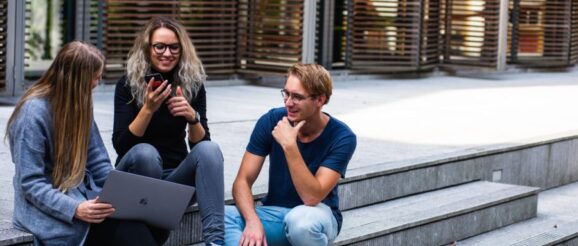Behavioural science vs human behaviour trends

Do marketers underestimate the obvious signs of consumer behaviour because we rely on ‘science’ and past theory?
During the Festival of Marketing, branding expert Helen Edwards discussed why marketers should rely less on the ‘science’ of customer behaviour and just open their eyes to how their audience is evolving. Human behaviour is fluid and by taking a scientific view on what is happening with consumers indicates that it can be predicted and proven, which is rarely the case.
She also argued that marketers tend to overestimate the power of ‘nudge’ theory. “What I think about nudge theory is it’s time for us to stop and drop the arrogance of trying to nudge people and be more alert and responsive to consumers who are nudging us,” she stated.
“When a call drops off a queue that’s a nudge to improve response time. When a consumer picks up a jumper, feels it and puts it down again, that’s a nudge to improve quality. When a consumer hides your pack, it’s a nudge about your packaging and even your brand meaning.”
To support marketers with reviewing their consumers’ behaviour in a way that can be used effectively, Custard has outlined key trends that hospitality businesses should watch out for and how to utilise them:
Localism
While it was a rising trend before the pandemic, COVID-19 has sped up consumers demand for localism, with Kantar research recently finding the pandemic has driven a surge of support for local produce, with 65% of consumers globally saying they prefer goods and services from their own country.
As consumers are now yearning for authentic local experiences, this presents an opportunity for UK hotels and venues to promote their use of local, seasonal produce within their restaurants or catering offering, British suppliers producing the goods in the property and showcasing their surrounding destination to prospective bookers.
Home investment
Due to the world’s need to work remotely for a high percentage of the time, lockdown has seen even the most DIY-phobes become a dab hand at home improvements. People have become more interested and invested in improving their homes and personal surroundings, which then become the backdrop to their Zoom meetings and business calls, but what does this mean for hospitality?
Businesses can be assured that consumers will be on the hunt for the experience that staying in a hotel can provide them – if it is safe to do so. To encourage more people to work remotely away from home, hotels and venues should be regularly communicating their day offering to consumers in their surrounding areas and highlighting the food and drink packages, exceptional service, boosted WIFI, quiet corners and Zoom-worthy interiors for a comfortable and productive day.
Customer service
There is no doubt that at the beginning of the pandemic, businesses struggled to provide the same level of service they had before due to complications. However, six months in, these teething issues should be resolved, and brands should be able to offer exceptional service within the constraints of the COVID-19 guidelines. Businesses cannot continue to use the pandemic as an excuse of poor customer experience and should utilise their communications platforms to share how they have needed to change their service to provide a quality experience within the restrictions.
If you’re interested in finding out how Custard can support your communications strategy and harnessing the opportunities shared above, contact our team today.
To read the full write-up of Helen Edwards’ session at the Festival of Marketing, .
